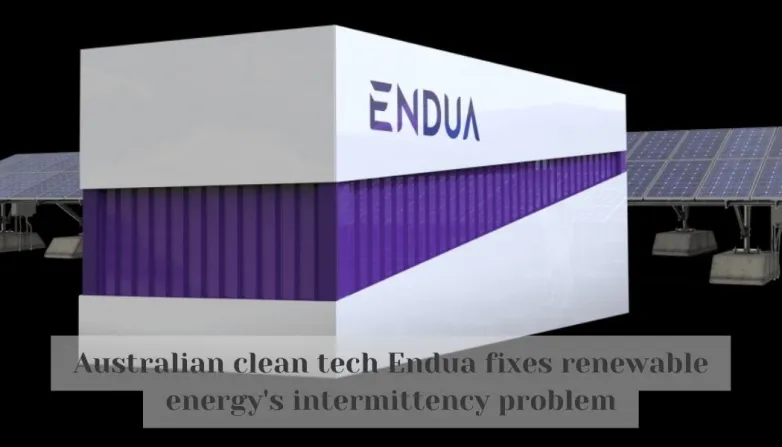Australian clean tech Endua fixes renewable energy's intermittency problem
- One significant problem with renewable resource resources like wind, solar as well as hydro is intermittency. This suggests they can not be counted on constantly given that, for example, the sun could stop beaming or it might be a still, windless day.

To fill gaps, users often depend on diesel generators or batteries. But diesel generators produce exhausts and batteries just last for a short time. Clean tech start-up Endua says it has found the solution with its modular hydrogen generation and storage technology.
The Australian startup announced today it has actually increased AU$ 11.8 million (regarding $7.8 million). Participants in the round consisted of new capitalists, Queensland Investment Corporation (QIC), Melt Ventures and 77 Partners, which with each other placed in AU$ 7.5 million. The rest of the funding originated from returning strategic capitalists Main Sequence (the deep tech fund established by federal government science agency CSIRO), and Ampol, Australia's largest transport power service provider.
Launched in 2021 by chief executive officer and also founder Paul Sernia, Endua utilizes stand-alone, modular hydrogen power banks that it claims can drive power tons of approximately 100 kW per module. This suffices to power water pumps, ranch sheds or stand-alone telecom framework. The amount of power utilized is scalable since excess renewable energy is kept as hydrogen and also converted into electrical energy by gas cells as required.
Sernia told TechCrunch that keeping excess renewable resource as hydrogen gets rid of intermittency challenges, considering that individuals can make use of their kept energy whenever required, or when renewable energy generation wants. Endua offers a wide range of consumers, consisting of local neighborhoods, farming as well as farming, telecom infrastructure, energy distributors and remote framework.
Endua designed and constructed electrolyzers that split water molecules into hydrogen as well as oxygen with electrolysis by utilizing renewable resource sources like solar or wind power. Then that produced hydrogen is kept in its modular banks, which are high-pressure storage tanks that can preserve the honesty of hydrogen for months. As soon as Endua's clients prepare to transform their stored hydrogen into electrical power, the power banks use electrochemical technologies, mostly through hydrogen gas cells, which creates no carbon emissions.
Sernia said Endua's power banks are developed to incorporate with existing energy systems, including renewable resource sources like solar panels as well as wind generators, to record excess power. This aids make sure customers have a continuous power supply.
Endua will utilize its new funding to scale its pilot systems and also on hiring over the following 18 months. In addition to its funding, Endua has actually likewise gotten a total amount of $4.3 million in grands, consisting of the Entrepreneurs' Programme Accelerating Commercialisation Grant, the Cooperative Research Study Centres Project and also the Advanced Production Growth Centre Grant. Every one of its items are produced in Australia as well as it is currently establishing manufacturing centers in Queensland.
In a statement about the financing, Ampol managing supervisor Matthew Halliday stated, "Endua's technology lays the foundation for off-grid as well as diesel energy customers to fulfill decarbonisation dedications as well as end up being self-reliant. We anticipate dealing with consumers as the technology is scaled to better explore applications throughout our economy."
Also read
- Eolus lines up 100-MW stand-alone battery in Sweden
- Lightshift Energy Locks In $40-Million Credit Line as Project Pipeline Nears Build Phase
- AMPYR Secures Financing, Offtaker for 300-MW Aussie Battery
- Poland's Solar Capacity Grows, Faces Grid Challenges
- Copenhagen Energy Partners with Thy-Mors for Solar Project
